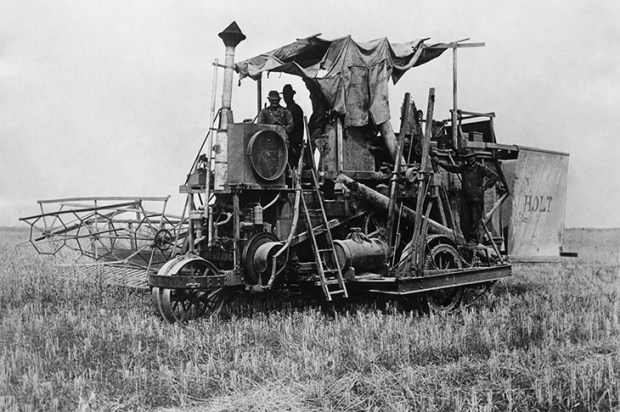Robert Caro, at the age of 83, continues to work full-time on his grand inquiry into the nature of political power. He has studied two figures in particular: Robert Moses and Lyndon B. Johnson. Moses — the subject of Caro’s first book The Power Broker — was the man who, over several decades, built the transportation system of the greater New York City urban area. Johnson was a Texan politician who grew up in a very different world and became president of the United States. Working offers a reflection on the biographical craft that has engaged Caro for most of his life.
His technique is to discover the motives, the strengths and weaknesses of those who enter political office. He studies every available detail in order to capture and then explain the evolution and exercise of power and its effects and implications; not only on those who wield it, but on those they affect. The fact that Caro’s two very different subjects both struggled against all sorts of problems, and both emerged from unusual backgrounds, brings them together. It is a coherent story and describes a form of power that cannot be easily imagined.
The teamwork between Caro and his wife Ina is an important element of the story. They did the research together, and they lived with the people they studied, and so experienced poverty and deprivation. Caro always tried to write slowly and carefully. His task became longer and harder as he got closer to the studied reality, as he collected more complex questions — and realised there existed more complex answers. His biography of Johnson, nearly 40 years in the writing, now runs to four of a projected five volumes.
The greatest of the gifts that the couple bring to their task is a deep empathy for the fate of the poor who lived in neighbourhoods that were redeveloped or who lost their homes as the great highways were laid and progress was brought to Texas. No change was too small to be ignored, and the Caros recorded every possible piece of information that would help to understand the world in which their politicians functioned; but also the worlds of those for or against whom they operated. Hence some of the most moving passages are about the struggles of the poor from the Texas uplands just to survive: how in the 1930s they carried buckets of water as the only form of washing they had. One of the hill women said to Robert: ‘You are a city boy. You don’t know how heavy a bucket of water is, do you?’
It is out of this world that Lyndon B. Johnson emerges. He was the leader and champion of the poor of the uplands — serving in the Texas delegation of Democrats — and developed a dedication to the Senate and a remarkable ability to operate in that environment. In time, he became the most effective politician in the US in the mid-century. Had he not got involved in the disaster of the Vietnam War, he might have gone down as the most successful American politician of all time. The first four chapters of Working cover this remarkable genius of politics. The book stands, Caro insists, on its own — and in some parts of the text it is as if Caro cannot separate himself and his life from his subject.
His life’s work still remains to be finished. His final volume of the Johnson biography will show in detail how, having succeeded in so many ways, LBJ destroyed his own career and the lives of thousands of American and Vietnamese soldiers.
Caro hasn’t got much time left, and as an even older author, I can only wish him the strength to complete a very grand project. Working is a mere reflection on it.
Got something to add? Join the discussion and comment below.
Get 10 issues for just $10
Subscribe to The Spectator Australia today for the next 10 magazine issues, plus full online access, for just $10.
You might disagree with half of it, but you’ll enjoy reading all of it. Try your first month for free, then just $2 a week for the remainder of your first year.














Comments
Don't miss out
Join the conversation with other Spectator Australia readers. Subscribe to leave a comment.
SUBSCRIBEAlready a subscriber? Log in